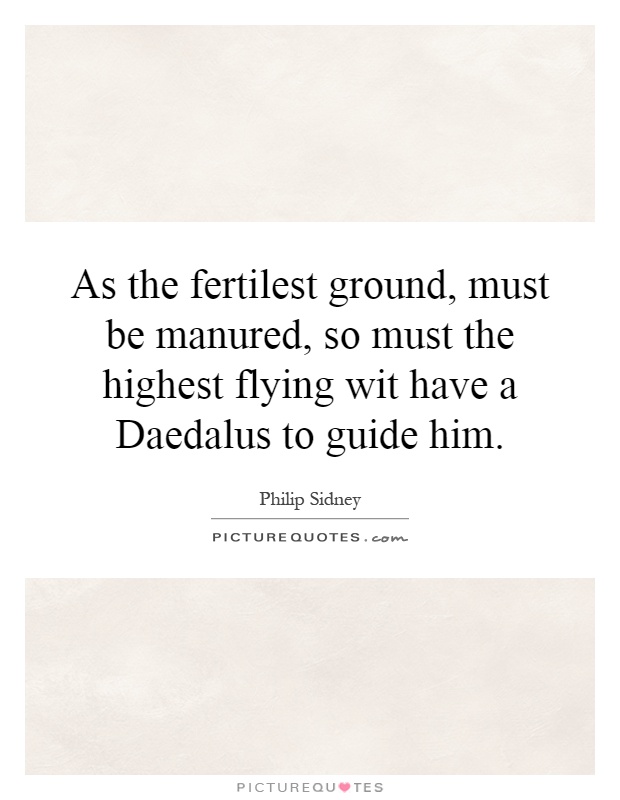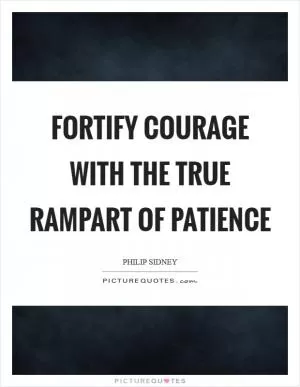As the fertilest ground, must be manured, so must the highest flying wit have a Daedalus to guide him

As the fertilest ground, must be manured, so must the highest flying wit have a Daedalus to guide him
Philip Sidney, a prominent figure in the Elizabethan era, was known for his exceptional wit and intelligence. His works, such as "The Defence of Poesy" and "Astrophil and Stella," showcased his deep understanding of literature and philosophy. Sidney believed that in order for a person to reach their full potential, they must have a mentor or guide to help them navigate the complexities of life and knowledge. This belief is reflected in the quote, "As the fertilest ground, must be manured, so must the highest flying wit have a Daedalus to guide him."In Greek mythology, Daedalus was a skilled craftsman and inventor who helped his son, Icarus, escape from the labyrinth by creating wings made of feathers and wax. However, despite Daedalus warning him not to fly too close to the sun, Icarus ignored his advice and ultimately fell to his death. This story serves as a cautionary tale about the dangers of hubris and the importance of heeding the advice of those wiser than ourselves.
Similarly, Sidney believed that even the most talented and intelligent individuals need guidance and mentorship in order to reach their full potential. Just as fertile ground must be nourished with manure to yield a bountiful harvest, so too must a brilliant mind be nurtured and guided by a mentor to achieve greatness.
Sidney himself had several mentors who influenced his thinking and writing, including his uncle, Robert Dudley, the Earl of Leicester, and the humanist scholar, Hubert Languet. These mentors helped shape Sidney's worldview and provided him with the guidance and support he needed to become one of the most celebrated writers of his time.












 Friendship Quotes
Friendship Quotes Love Quotes
Love Quotes Life Quotes
Life Quotes Funny Quotes
Funny Quotes Motivational Quotes
Motivational Quotes Inspirational Quotes
Inspirational Quotes